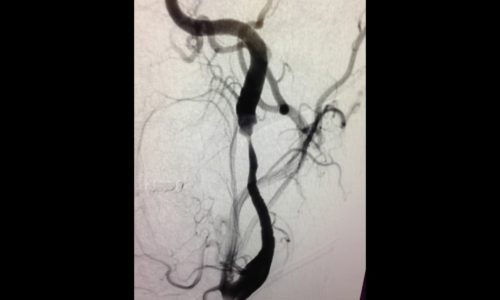Heart Health Starts Now: How to Prevent the #1 Killer in America |

Heart disease remains the leading cause of death among men and women in the United States. Often silent until it strikes, the first symptom for many is a heart attack—or worse. But what if it didn’t have to be that way?
On this episode of Ask the Doc: No Appointment Needed, host Kathy Buccio is joined by Dr. Jonathan Fialkow, Chief of Cardiology at Baptist Health’s Miami Cardiac and Vascular Institute. Together, they unpack the importance of early detection, prevention, and personalized care in the fight against cardiovascular disease.
What Is the Prevention Clinic?
Dr. Fialkow emphasizes that prevention isn’t just a buzzword—it’s a comprehensive, proactive strategy to stop heart attacks, strokes, and other cardiac events before they happen. At Baptist Health’s Miami Cardiac and Vascular Institute Prevention Clinic, physicians assess individual risk using a combination of:
- Medical history and lifestyle habits
- Advanced blood tests and genetic markers
- Non-invasive imaging, like coronary calcium scoring
- Personalized treatment plans
“Our goal is to prevent premature death from cardiovascular disease,” Dr. Fialkow explains. “We can’t prevent everything, but heart attacks and strokes are among the most preventable causes of death.”
Why Are More Young Adults at Risk?
Cardiovascular issues are showing up earlier in life, even in people in their 20s and 30s. Why?
- Increased consumption of ultra-processed foods
- Sedentary lifestyles
- Sleep deprivation
- Chronic stress
- Environmental pollutants and microplastics
These modern-day risk factors set the stage for inflammation, which underlies many chronic illnesses—including heart disease, diabetes, and even cancer.
Real Questions from Real People
“Heart disease runs in my family. What can I do?”
If your family members experienced heart attacks in their 40s or 50s, your risk is elevated—but not set in stone. Dr. Fialkow stresses two key action items:
- Adopt a heart-healthy lifestyle:
- Eat real, whole foods
- Exercise regularly
- Don’t smoke
- Get restorative sleep
- Eat real, whole foods
- Seek a full risk evaluation with your primary care provider or a cardiologist. This includes blood work, family history analysis, and possibly imaging tests like coronary calcium scoring to assess for early artery disease.
“I was just diagnosed with type 2 diabetes. Could I have prevented it?”
Type 2 diabetes is often linked to insulin resistance caused by years of high sugar and processed carbohydrate intake. While some factors are beyond our control, you can manage or even reverse diabetes by:
- Reducing added sugars and refined starches
- Losing excess weight
- Exercising regularly
- Taking medications as prescribed to reduce inflammation
Dr. Fialkow notes: “Diabetes increases cardiovascular risk not through sugar alone, but because it creates a state of chronic inflammation in the body.”
“I’m suddenly short of breath during workouts. Should I worry?”
Shortness of breath can result from poor fitness, aging, or something more serious like heart or lung disease. If you notice a change in your normal breathing pattern, even without chest pain, see your doctor. Evaluation might include:
- Stress test or echocardiogram
- Lung function tests
- Blood work
- Cardiac imaging if needed
“My feet are swelling—is this my heart?”
Swollen feet are often caused by venous insufficiency, especially if they worsen throughout the day and improve overnight. But persistent or sudden swelling—especially with shortness of breath or difficulty lying flat—could point to heart failure or valve issues. A doctor may order:
- Leg ultrasound
- Echocardiogram
- Blood pressure and heart rhythm evaluation
“Is vaping really that bad for the heart?”
Yes. Vaping may seem like a safer alternative to smoking, but the nicotine and chemicals in vape products:
- Raise blood pressure
- Increase heart rate
- Damage blood vessels
- Cause inflammation, a major trigger for cardiovascular disease
Dr. Fialkow’s advice: “Keep foreign substances out of your body. There’s no such thing as a safe form of nicotine.”
Advancements in diagnostics are changing the game. Blood markers like lipoprotein(a) and imaging tests like coronary CT scans allow doctors to tailor treatment and prevention strategies with far greater precision than standard cholesterol tests alone.
Dr. Fialkow explains, “Medicine is shifting from population-level recommendations to precision-based prevention. Everyone’s risk is different, and we’re finally able to account for that.”
Whether you have a family history of heart disease, are newly diagnosed with diabetes, or simply want to know how to lower your risk—remember: prevention starts with awareness. Small choices, regular screenings, and expert guidance can save your life.
Watch the full episode of Ask the Doc: No Appointments Needed here: https://youtube.com/live/Vt2fGJeWQtQ








